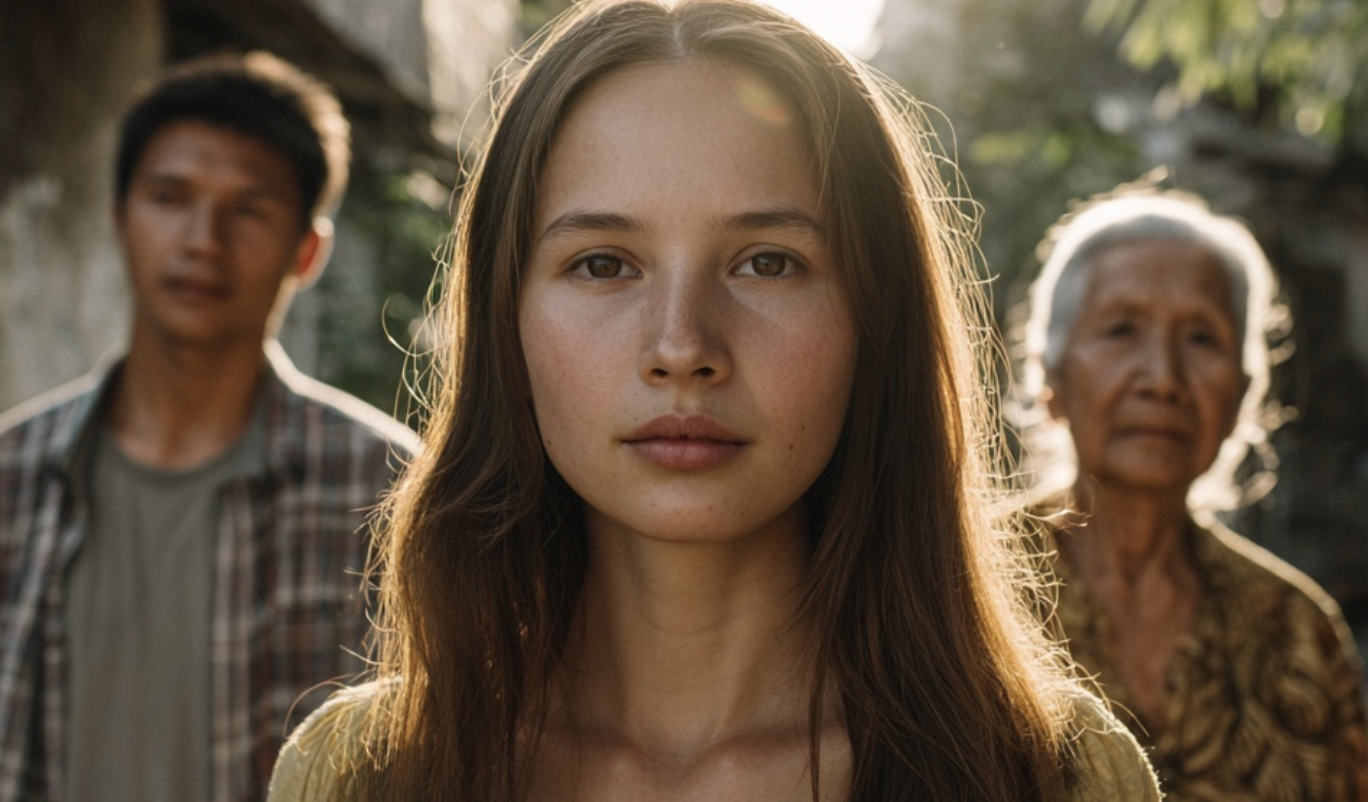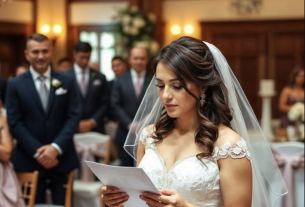“Mom called. She’s complaining about life again. She’s exhausted by my brother’s family,” Igor said, washing the dishes.
“Well, everyone gets what they deserve, right?” I replied, spooning my husband’s lunch into a container for work.
“I’m just tired of hearing about the kids making noise and how cramped it is for all of them in that two-room apartment.” Igor picked up a towel and started drying the plates.
“I just don’t understand why Lyosha has endless problems. He should have changed jobs long ago, and they should have rented a place instead of squeezing in with his mother—three kids and a wife.” I closed the container and put it in the fridge.
Conversations like this happened in our house often. Igor and I had been married for five years, and all that time I’d heard how hard it was for my husband’s older brother. The hardship was that he’d married a quarrelsome woman, immediately produced three children, his work was always going badly, and they had nowhere to live. What were they thinking having kids like that—I couldn’t even guess. One fine day Alexey and Maria showed up on my mother-in-law’s doorstep with their three offspring and announced they’d be living with her now. Irina Semyonovna couldn’t throw out her son and grandchildren; she let them in, and a hundred times repented of her rash decision and her kindness.
My mother-in-law was over sixty and wanted peace and quiet, but the little grandsons were growing up restless and noisy, like all children. Daycare helped, of course, but the evenings turned into endless games, which mostly drew in the grandmother. The parents tried to snatch a moment of personal time—Masha would hide in the bathroom, and Lyosha would sit down at the computer to play. To get at least a bit of rest and reset, Irina Semyonovna would come to us with her endless complaints about life. We really did feel for her on a human level, but both of us also understood perfectly well that my mother-in-law herself was to blame for what was happening to her.
Besides, Lyosha and his family had been living with her for almost a year and had done nothing to move into a rental. He was satisfied with a pitiful salary, and his wife stayed home for four years or more with each child. My mother-in-law was truly exhausted by the apartment filled with noisy kids, where she no longer had a corner of her own.
Right around when Alexey and Maria’s youngest son was born, my grandmother passed away. She had never complained about her health; even well into her eighties she managed the dacha on her own. She weeded and watered the many beds herself, planted and dug up potatoes, and every autumn put up so many preserves that there was enough for everyone. When she died, it turned out she had left the dacha to me. I was her only and favorite granddaughter, and my parents had no need for land of their own.
Mom and Dad were still working, and they had no desire to bother with greenhouses, as they had said many times at family gatherings. So Grandma reasoned that my husband and I would need it more. Igor could do anything with his hands, and soon we had everything fixed up so well you could live there even in winter. We clad the spacious house with siding, put everything in order inside, brought in all the utilities. It wasn’t cheap, but we both worked and earned enough to invest in the country house and the plot. I happily bought all sorts of shrubs and seedlings, and in summer the garden was full of plants that rewarded us generously when their time came.
In summer we moved out there—fresh air, a river and a forest not far away. And it was less than an hour to the city, so getting to work was no problem. Sometimes relatives came for barbecue—not too often, fortunately. They didn’t help much, but Igor and I managed fine on our own. My mother-in-law considered us well-off—after all, we had a dacha, an apartment, and a car. She often asked for money to help her older son. Igor usually gave small amounts, though he was annoyed that Lyosha didn’t want to change anything.
Somehow, that’s how it turned out in the family: the younger grew up hardworking and proactive, ready to achieve everything in life, while the older thought the world owed him. The children complicated things too. Alexey figured that now everyone owed him threefold, since he was raising three boys. Kids really are expensive these days, but the parents should have known and thought about that when they decided to have them.
This year we finished building a bathhouse, a gazebo, and a second floor. My father helped my husband, so we got it all done in one season. Dad was handy too, and he and my husband always got along. Now our dacha was truly exemplary—anything you could wish for was there. Water, heat, a proper steam bath, and a beautiful gazebo for tea at sunset. A friend gave us saplings of horse chestnuts and Manchurian walnut, which we planted not far from the gazebo. When they grow, their ornate leaves will cast deep shade on hot summer days.
The last time my mother-in-law came, she raved so exuberantly about what we’d done that Igor and I just smiled. She’d never had a dacha and always dreamed of one, she said. Still, we didn’t invite her too often. Yes, my relationship with Irina Semyonovna was decent, but her constant coddling of her elder son always irritated me.
In the fall we planned to build insulated coops and keep chickens. The plot was big, so we could afford a lot. Many people here kept geese and even larger livestock. Igor and I had discussed it many times and knew we couldn’t handle a full farm. But some hens—for our own eggs and meat—would be fine. My husband had already bought lumber for the pens, watched how-to videos online, and talked to neighbors who already had experience with poultry.
Almost every yard here kept some sort of animal at least in the summer, and the dacha settlement was starting to look like a proper village. We didn’t dare spend winters there—honestly, it’s hard. A house of your own constantly demands work and effort. In winter you have to clear snow every day, which isn’t very convenient when you work a five-day week. So we stayed there only until October, then moved back to the city. Still, we planned to try staying one winter at least once. Maybe we were worrying for nothing. Other people manage and don’t complain. We wouldn’t rent out the apartment anyway—we didn’t want strangers in our home. We’d just pay the minimum utilities. In the countryside it was very cheap. Heating cost less than two thousand rubles a month with a gas boiler even in the coldest months.
And we were planning to have our own children the next year. We’d been married a long time, and we wanted to continue our line. We talked about it many times and even saved up a bit for the first stretch. Children mean responsibility. You can’t just make three of them and expect them to grow like weeds along a fence. You have to feed them, clothe them, teach them. For Lyosha everything was simple—he’d crashed at his elderly mother’s with his brood, as if that’s how it should be. Igor and I calculated and planned everything. Of course, you can’t foresee everything, but you should strive to.
Lately my mother-in-law had been coming over constantly. There was no end to her complaints. She lived in cramped quarters and felt aggrieved. She didn’t think much of her lazy daughter-in-law, was tired of the grandkids, and her son could sometimes snap back at her sharply, which hurt her feelings. She wanted peace and quiet.
She promised to come tomorrow as well, to have tea and “talk.” This time “talk” sounded weighty from her lips. Apparently something really important. I cooked creamy ukha with cod and basil for her visit and baked a savory batter pie with cabbage and ground meat. It always turned out wonderfully tender and aromatic—we could finish it off in a day.
As promised, Irina Semyonovna arrived after noon. Rosy-cheeked from the cold autumn wind, she took off her coat and came into the kitchen. It was Saturday; my husband and I were both home. Igor had helped mop the floors while I made the pie. He never divided housework into “women’s” and “men’s,” like many men do. He understood it was hard for me too, since I worked, and he always tried to make life easier for me. I knew how lucky I was with Igor and always sincerely thanked him for the chores and his support.
Irina Semyonovna took a big sip of sweet tea with milk, held a theatrically long pause, and said:
“We’re going to give your dacha to my son. He has a family; he needs it more.”
“We have a family too, and the dacha came to me as an inheritance from my grandmother,” I protested, getting over the first shock. “Lyosha is already pushing forty. He could have done a lot and gotten on his feet by now. But your son prefers to live with you, with his numerous children and a wife who neither wants to work nor help you around the house.”
“Don’t be clever, Vera—do as I say! He’s your husband’s brother; you’re obliged to respect him.”
“For what? For not getting off the couch until forty and only being capable of making children? Forgive me, but that doesn’t inspire respect. For three years my husband and I worked and shuttled back and forth, fixing up the country house and the plot. That’s what I respect—we didn’t burden anyone and we pursued our goal. We never once asked you for anything. And now you propose we hand it all over to your son? Not a chance! He hasn’t so much as painted a single board there and wants to get everything, as always, for free!” I was getting angrier and angrier.
“Mom, you’re asking the impossible. We need the dacha ourselves. We’re planning a baby next year, and we’ll be going there as a family with the little one,” Igor joined in.
“You’ve lived all these years and haven’t even gotten a cat! And Lyoshenka already has three.”
“They could have seven, for all I care! That’s not our concern, Irina Semyonovna,” I said.
“I see how you are. You wouldn’t give even snow in winter. Live as you please!”
My mother-in-law got up from the table without finishing her tea and went to the hallway. Throwing on her coat and tying a kerchief over her hair, she hurriedly put on her shoes and left, whispering something else to her younger son. Igor came back not the least bit upset.
“The nerve! Give them the dacha! They only ever came out there for barbecue, and even then at our expense. Not once did they offer to help—just ‘give, give’ for free: the vegetables, the rest, everything. And now they want us to let them live there, too,” I fumed to Igor.
“Exactly. Let her be offended; it’s the angry ones who end up hauling water,” my husband replied. “Come on, let’s eat. The whole house smells like ukha and pie.”
I smiled, opened the oven, and checked with a matchstick whether my batter pie was done. It had baked perfectly. We ate and chatted, dreaming about a son or a daughter.
My mother-in-law, offended, really did drop off the radar. She didn’t ask for money to help Alexey and the grandkids, didn’t write or call. From a neighbor I knew that her son’s family was still living in Irina Semyonovna’s apartment. We spent New Year at the dacha—we moved there for a whole week. As it turned out, the winter wasn’t that snowy, and dacha life didn’t turn into endless path-clearing. The winter weekend was a success. We grilled fish, walked a lot, decorated the fir tree that grew right by the house, and hung bright outdoor garlands. The winter was warm and windless. If it snowed, it didn’t last long and didn’t cause any special trouble.
When we got back home, I found out we would soon become parents. I told my husband over dinner, and Igor was genuinely happy. We started setting up the nursery, and those chores inspired and delighted us. I bought a crib with colorful bumpers embroidered with funny penguins on white ice floes and chose bedding for the future baby. We didn’t yet know whom we were expecting, but it didn’t matter—girl or boy. We would love any child, because it would be ours. My mother-in-law kept going to complain to the neighbor and didn’t trade anger for mercy even when Gena and I came home from the maternity hospital.
Gena was born right on time—with chubby cheeks, adorably sticking-out ears, and big blue eyes like all newborns. A new, happy life began for my husband and me, a life our son changed completely. There was plenty of work with him, but Igor helped a lot, and once again I was convinced I’d married the best man in the world. Happiness is in the little things, in simple choices and simple deeds.
But it’s impossible unless you take responsibility—for your own comfort, for yourself, for your family, and for your relationships with the people around you. None of this appeared out of nowhere—we earned it with hard work, decisions, and a willingness to bear the consequences. Lyosha went on living with his mother, dumping his wife and three children on her. He was satisfied. And as for us, it didn’t concern us; we had our own little world in which we kept building and building our happiness.



